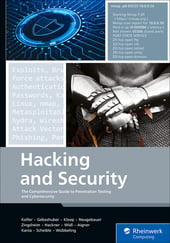Over the past years, the rise in internal cyberattacks and network intrusions in organizations has become quite frequent.
Attacks like those of the WannaCry ransomware not only permit unauthorized access, but also cause data and financial loss. Tools for assessing vulnerabilities are highly important for scanning and identifying internal and external security threats and risks. To minimize the incidence of cyberattacks, the use of analytics and artificial intelligence (AI) is gaining traction to identify the risk and vulnerabilities in a computer network.
The Rise of Zero Trust Security
Experts in this domain are working on security protection using a security-as-a-service (SaaS) model with the help of security services to implement zero trust security solutions. Due to the rapidly changing wide area network (WAN) environment and the expanding complexity of enterprise networks, organizations nowadays are finding it quite challenging to maintain their network security. This is where a zero trust security model has come up, to secure enterprise networks and ensure multi-layered security altogether.
According to a recent study by Allied Market Research, the global zero trust security market is expected to display a noteworthy CAGR from 2022 to 2031. This increased investment in security strategy has driven market growth in more than one way. The fact that zero trust security solutions enable consumers to address vulnerability threats effectively has supplemented the market growth even more.
The emergence of the blockchain, IoT, artificial intelligence, machine learning, and bring-your-own-device has given way to an increase in the number of devices that use the cloud for data storage and transfer. Additionally, connected devices with AI capabilities and IoT continuously gather and store data on the cloud, making them accessible to hackers. Hence, security vendors have adopted zero trust models so as to strongly and thoroughly secure their IT environment.
Zero Point Security Vendors
In order to support the digital revenue model, many vendors are also concentrating on scaling endpoint security. As cyber security players evolve into zero trust security vendors, there’s been a steep rise in the number of businesses offering specific solutions or frameworks for implementing the zero trust security model.
Top companies involved in the zero trust security market include Broadcom, Okta, Cloudflare Inc., Forcepoint, Sophos Ltd, Centrify Corporation, Cisco, IBM, Akamai Technologies, Check Point Software Technologies Ltd, Pulse Secure LLC, Cyxtera Technologies Inc., FireEye Inc., Illumio, and Microsoft.
Check Point purchased cloud-based, secure remote access technology from Odo Security in September 2020. The quickest and safest solution for companies looking for secure data transfer to any application is to combine this technology with Check Point's Infinity architecture.
Okta introduced Okta Privileged Access in April 2021, which combined identity management with adjustable, least-privilege access controls for critical infrastructure to speed up development and operational agility. This enhanced zero trust security at the most in-depth levels of enterprise technology environments.
Cisco and Telenor Group signed an agreement in April 2022 to further automate Telenor's internal security operations and enable quicker responses to cybersecurity threats.
In order to help Australian businesses in protecting themselves from the threat of ransomware and cybersecurity attacks affecting vital infrastructure and digital assets, Akamai and Fujitsu got into a partnership in May 2022. And a significant cybersecurity technology portfolio from Palo Alto Networks is now available in managed, outcome-based Deloitte offerings after the two companies announced the expansion of their strategic partnership in May 2022. With the new agreement, US organizations would have access to threat detection, 5G security, and zero trust enterprise.
In June 2022, the expansion of Tenable's partnership with the Microsoft Intelligent Security Association was announced by Microsoft Corporation in response to Executive Order 14028 and the commitment to enhance cybersecurity throughout the United States. By establishing zero trust architectures and other cybersecurity tools, Microsoft and Tenable improved the US government's capacity to swiftly identify, investigate, prioritize, and address threats and help strengthen the nation's security posture.
In July 2022, Palo Alto Networks and HCL Technologies announced the expansion of their collaboration to offer customers solutions that are combined to help secure digital and cloud transformations. By adopting managed secure access service edge, cloud, and threat detection, Palo Alto Networks would strengthen HCL Technologies' suite of cloud and managed security services.
COVID-19s Impact on Zero Trust Security Market
The COVID-19 pandemic has now made businesses understand how important a zero trust environment is to safeguard their essential data. With remote workers using vulnerable networks, the IT security environment has changed significantly in a short time. Companies nowadays need to maintain a trusted network perspective on security to provide a zero trust security setting and restrict access to a certain level, where only authorized sources can be admitted. Especially as many companies worldwide have still continued working remotely post-pandemic, and invested significantly in putting the zero trust architecture in place, the zero trust security market is blooming ever faster.




Comments